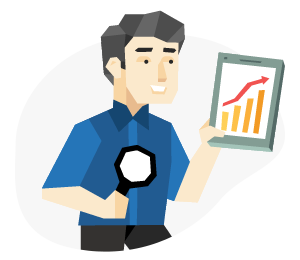Expert’s Guide To Maintaining Brand Consistency
Brand consistency might sound like a buzzword that gets thrown around more often than a beach ball at a concert,
Personalized travel experiences are one of the most significant trends within the tourism industry. This forces travel companies to jump on the bandwagon and start creating personalized experiences that resonate more with their customers.
The challenge is how to stand out among the crowd when there is a vast pool of choices present in the marketplace. Plus, the travel and tourism sector is just getting back to its feet after COVID-19 placed the world in halt.
The tourism industry, in particular, has seen an increase in competition and sophistication of marketing tactics in recent years.
Businesses in this industry need to understand how they can compete in the digital and social media platforms to gain a competitive edge over their opponents.
Paradox Marketing provides custom marketing solutions that help businesses stay ahead of the curve. Our team can assist you with your marketing challenges.
Consumers begin and end their journey with digital experience.
In every stage of the customer journey, from researching ideal options to booking to planning and traveling to the destination, travel companies must ensure that their customers get an effortless and seamless digital experience.
Paradox Marketing provides custom marketing solutions in analyzing and unifying customer data with the digital experience. With a strong SEO strategy, your company will deliver a great digital customer experience, be exposed to more potential leads, and generate more traffic to your site
With so many choices available to tourists, staying on top of their minds is a challenge in the travel and tourism industry.
An effective marketing strategy should come into play to bridge the gap between the consumer and your travel company.
We work with the tourism industry to generate customized marketing solutions to widen their digital footprint. With the right buyer persona, the right digital platforms, and competitive research, you can attract more travelers interested in what you have to offer.
Getting a high amount of traffic doesn’t automatically mean a positive ROI. You waste revenue and a potential customer base when you fail to convert lookers into bookers.
Getting people to do something for you requires you to first do something for them, and maybe it is time to let your conversion marketing strategies work more for you.
Our conversion rate optimization strategies create practical and attention-grabbing content, utilize social media marketing services, and perfect SEO strategy. All are designed to improve conversion rates.
5.0
Average Review Ratings
14
Total Reviews
$10,000 - $49,000
Most Common Project Size
5.0
/5
Average Referral Rating
Our team are the heart and soul of our organization. The values we recruit for are determination, attention to detail, and above all trust.

Chief Executive Officer

Chief Marketing Officer

Chief Operating Officer

DevOps Engineer

Account Manager

Content Team Specialist

Senior Developer

Content Writer

DevOps Engineer

Content Team

Assistant Account Manager

SEO Strategist

Content Team

Content Team

Frontend Developer

CRM Specialist

Google Ads Strategist

CRM Specialist

Content Team

Content Specialist

Data Analyst

Content Team

Account Manager

Content Team

Frontend Developer

Backend & Frontend Developer

Senior Developer

Graphic Designer

Frontend Developer

Account Manager

SEO Manager

Illustrator

Web Developer

Front End Developer

CRM Team Leader

Designer

CRM Specialist
Brand consistency might sound like a buzzword that gets thrown around more often than a beach ball at a concert,

If you find yourself asking whether Salesforce or HubSpot would be the better option for your business, then you are

Setting the Context: Gaining Deeper Insights from Makhyan’s Article In the complexities of search engine optimization, outbound linking emerges as


About Us
Legal
©2024 Paradox Marketing
Fill Out The Form To Get In Touch